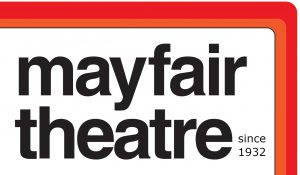Magic In The Moonlight
2014 | 97 minutes
Woody Allen’s “Magic in the Moonlight” stars Emma Stone as a psychic medium, Sophie Baker, and Colin Firth as a master magician who sets out to debunk her. Ms. Stone is entrancing, whether Sophie is in or out of her trance state, and so is the movie as a whole.
The time is the 1920s and the setting is the Côte d’Azur, basking in the gauzy warmth of Darius Khondji’s cinematography. Mr. Firth’s conjuror, a haughty Englishman named Stanley Crawford, has come to the south of France at the request of an old friend and fellow magician, Howard Burkan (Simon McBurney). Howard worries that a rich American family is being fleeced by the alluring Sophie, and Stanley, who performs under the stage name of Wei Ling Soo, makes a specialty of unmasking fake psychics. (Wei Ling Soo is a riff on Chung Ling Soo, the stage name of an American, William Ellsworth Robinson, who also exposed fake psychics, and who died on stage from a bullet wound when a trick went disastrously wrong.)
The conjuror behind the camera has often used magic and magicians in his movies, most recently a fortune teller in “You Will Meet a Tall Dark Stranger.” He keeps us waiting before he brings Sophie onto heighten suspense about whether she could be the real thing, and to establish scowling, snarling Stanley as her adversary. “You’re a genius with all the charm of a typhus epidemic,” Howard says with wry fondness, but that barely begins to describe him, or to hint at the pleasures of Mr. Firth’s performance.Stanley is full of himself to the bursting point, and a superb comic charactera pessimist searching furtively for hope; a steely rationalist and male chauvinist riding for a romantic fall. If there’s a sense that we’ve encountered him before, it’s not accidental. He’s Henry Higgins redux, with speech patterns that sometimes echo Rex Harrison’s; at any moment he could break into “I’ve Grown Accustomed to Her Face.” (Mr. Firth pulls off a trick of his own by appearing young enough to make us overlookif we’re inclined to do sothe 28-year age difference between him and Ms. Stone.)
The movie opens on a black screen, as Woody Allen movies often do, with a tinny orchestra playing the old Cole Porter song “You Do Something to Me.” From the moment Stanley first sets eyes on Sophie, she does something to him that can’t be explained by her lovely face or her wide, earnest eyes, which never narrow in the face of his insults. Whatever Sophie may be up to, Ms. Stone is the real thing, a comedienne of classically flawless delicacy. Watching Sophie in action, Stanley denies the existence of a sixth sense, but Mr. Allen has long had one about matching exceptional actors with roles that allow them to transcend themselves. Now Ms. Stone has earned her turn, and it’s hard to say which is more delicious, Sophie’s intricate duels with Stanley, who grows dumbfounded by her clairvoyance, or her oscillations between hooded mystic and hearty American, a high-spirited gal from Kalamazoo.
“Magic in the Moonlight” is filled with flavorsome performances: Mr. McBurney’s Howard; Eileen Atkins as Stanley’s Aunt Vanessa; Marcia Gay Harden as Sophie’s mother; Hamish Linklater as her fatuous suitor; Jacki Weaver as her wealthy sponsor, or her mark. The production is minor in its scale, but not in its substance, which amounts to a summing up of themes that Mr. Allen has explored throughout his creative life: his abiding pessimism, his relentless questioningoften couched as kidding on the squareof life’s meaning. It’s all the more remarkable, then, that the film’s most powerful magic lies in its unquenchable playfulness. Think of it as a 97-minute séance that draws you in, spins you around, subverts your suppositions, levitates your spirits and leaves you giddy with delight.
